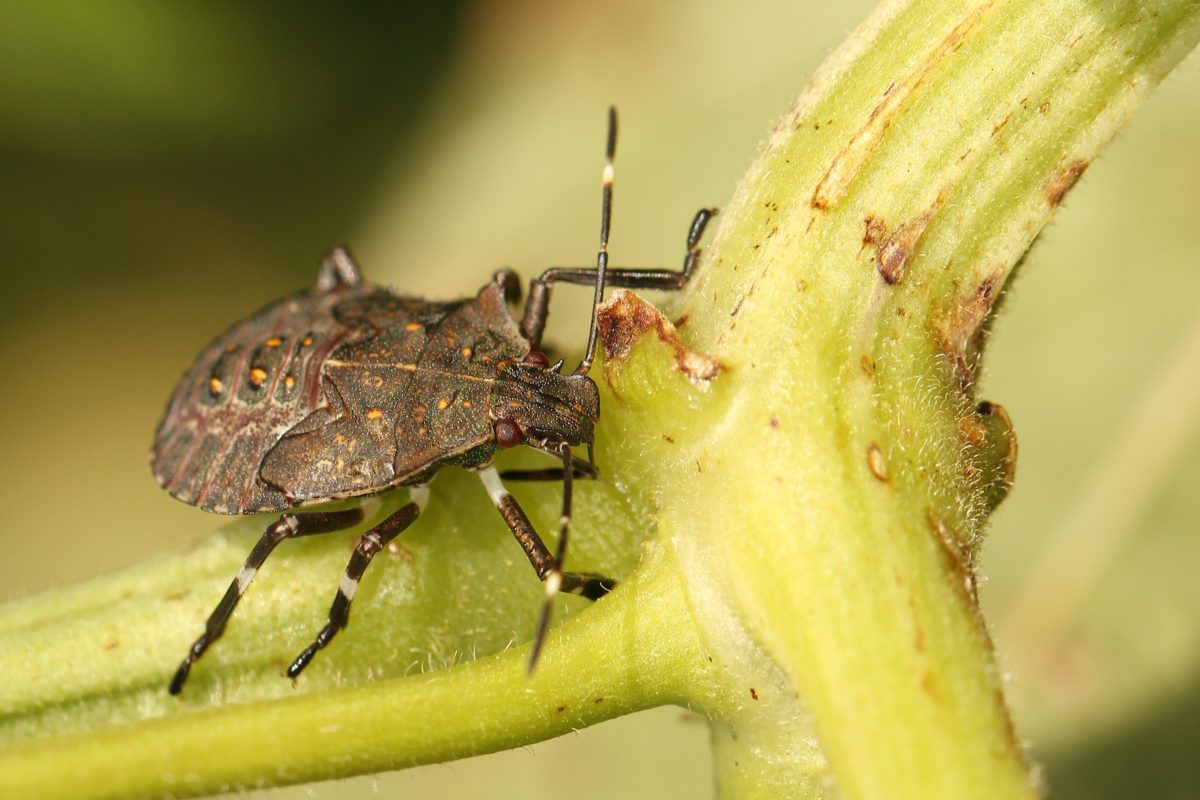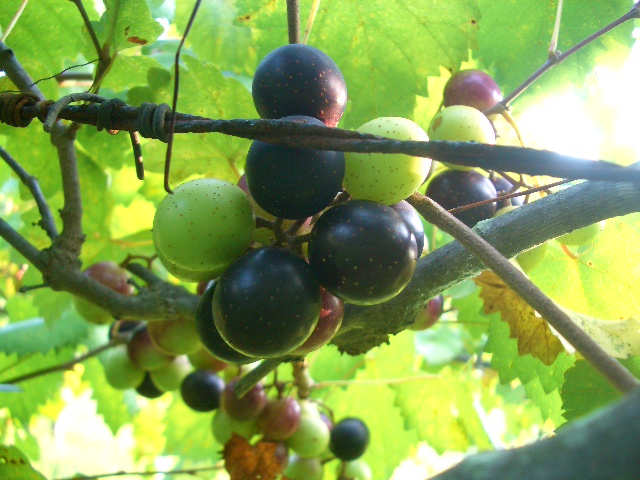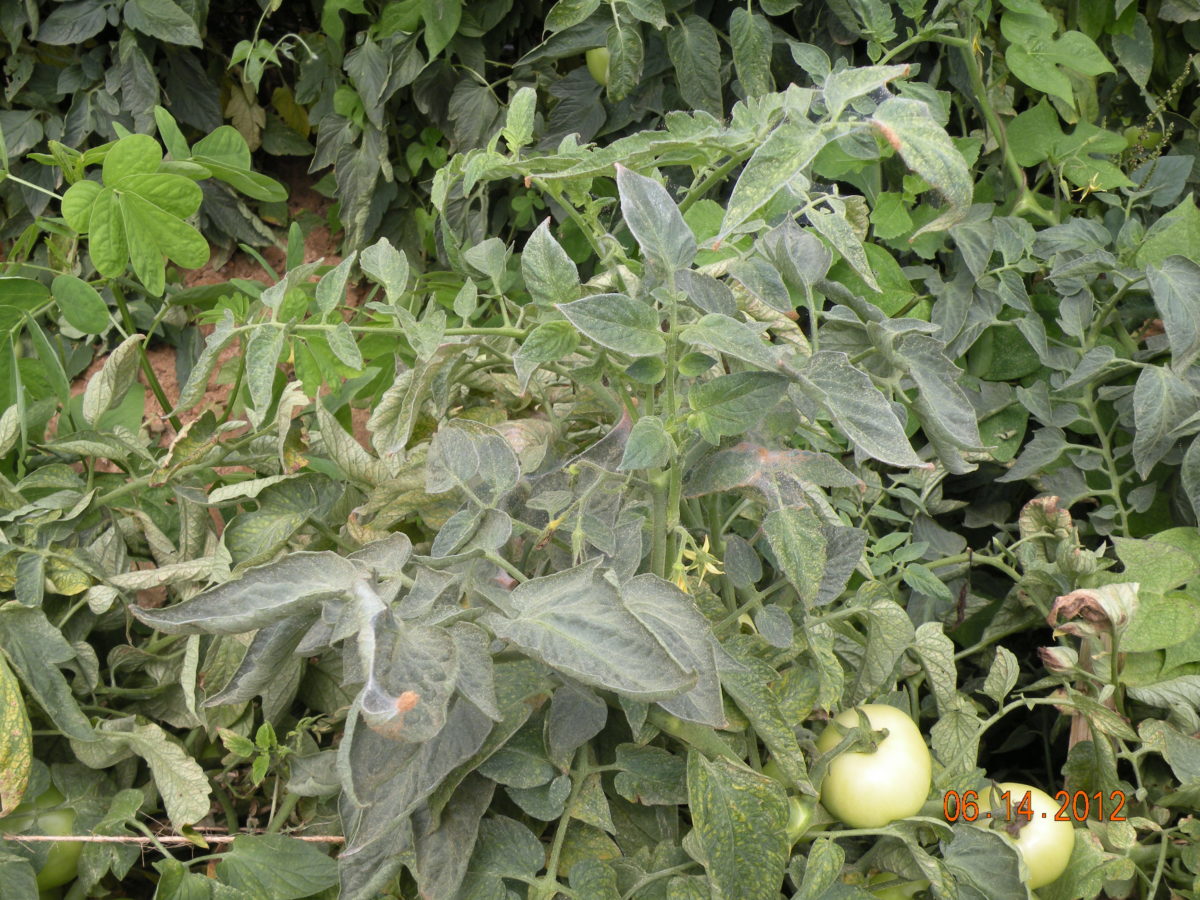By Karla Arboleda Researchers at the University of Florida Institute of Food and Agricultural Sciences (UF/IFAS) are working on techniques for managing pests in Florida blueberries. Both blueberry gall midge and chilli thrips are problematic for several blueberry varieties. Oscar Liburd, a professor of entomology at UF/IFAS, shared findings from the past season on managing pests. PEST ACTIVITY AND IDENTIFICATION …
New Method to Combat Brazilian Peppertree Problem
By Karla Arboleda Researchers at the University of Florida Institute of Food and Agricultural Sciences (UF/IFAS) are now approved to release a specific type of thrips to help control the Brazilian peppertree problem. INVASIVE SPECIES Brazilian peppertrees are an invasive shrub that cover about 700,000 acres of Florida. Carey Minteer, an assistant professor at UF/IFAS, worked on a portion of …
Two-Spotted Spider Mites: Serious Pest in Strawberries
By Shane Curry and Jeff Cook With fall planting upon us, the southeastern strawberry season is underway. In this part of the country, strawberry plants are set annually from September to November with fruit ripening from April to June. From the time the plants arrive on the farm in the fall through harvest time in spring, growers must thoroughly inspect …
Brown Marmorated Stink Bugs Getting Ready for Winter
By Karla Arboleda As the weather cools down, brown marmorated stink bugs (BMSBs) in the deep Southeast are seeking to stay in dry areas away from crops. BMSBs will typically affect peaches, apples, tomatoes, peppers, corn and soybeans throughout North Carolina and South Carolina, but not for much longer. According to Jim Walgenbach, an Extension entomologist at North Carolina State …
Steaming for Weed Management
By Ramdas Kanissery and Yiannis Ampatzidis Weeds are a significant problem in horticultural production and must be controlled to maintain good crop yield. Concerns related to non-judicious use of herbicides, which include ground and surface water contamination and pesticide residues in food, has sparked public awareness and restrictions on herbicide use. For these reasons, alternative and integrated systems for weed …
‘A Big Leap in the Insect-Monitoring World’
All insect management usually begins with some sort of monitoring technique. Traditionally, growers have used sticky wing traps or bucket traps. But, according to Ayanava Majumdar, entomologist with the Alabama Cooperative Extension system, there are insect-monitoring technologies that could be helpful to growers. Majumdar says that there are two automated insect traps on the market right now that he has …
Whitefly and Diamondback Moth Management in South Florida
By Karla Arboleda Researchers at the University of Florida Institute of Food and Agricultural Sciences (UF/IFAS) are looking into products that are effective against whiteflies and diamondback moths in South Florida. Hugh Smith, vegetable entomologist at the UF/IFAS Gulf Coast Research and Education Center (GCREC), works to apply information growers share about their experiences toward better insect management in crops. …
New UF Extension Specialist Aims to Assist Small Fruit Growers
By Karla Arboleda Southwest Florida growers can expect help from new small fruit Extension specialist Sriyanka Lahiri. At the University of Florida Institute of Food and Agricultural Sciences (UF/IFAS) Gulf Coast Research and Education Center (GCREC), Lahiri works with strawberries and blueberries to develop a pest management program that uses less broad-spectrum insecticides. Appointed in February, Lahiri helps the small …
Muscadine Grape Pest Problems
By Karla Arboleda Muscadine grapes are native crops to the deep Southeast and are naturally resistant to some pests. Among other pests, grapevine aphids and grape root borers tend to be the most common problems when growing muscadine grapes. Oscar Liburd, a professor at the University of Florida Institute of Food and Agricultural Sciences and fruit and vegetable entomologist, says …
Dealing with Spider Mites During Drought
By Karla Arboleda Spider mites will feed on crops when the weather is hot and dry, but growers should use cultural control tactics before considering pesticides. Droughts raise the likelihood of seeing spider mites, but so does using pesticides that kill beneficial spider mites. Ayanava Majumdar, Extension entomologist with the Alabama Cooperative Extension System at Auburn University, says spider mites …












